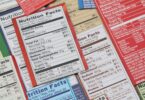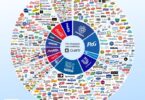The following report is by Medical News Today (excerpts):
The study was recently published in the journal Science Advances.
Parkinson’s disease is considered the fastest-growing neurological condition in the world. Researchers estimate that more than 10 million people globally live with the condition.
How Environmental Factors Affect Parkinson’s Disease
According to Dr. Andrew West, professor in the Department of Pharmacology and Cancer Biology at Duke University School of Medicine and principal investigator of this study, we know that Parkinson’s disease is not typically heritable or transmissible, and some of the disease risk is thought to be due to pesticide and toxin exposures in the environment.
However, the known environmental risks account for a very small percentage of what may be lurking out there, increasing our risk of getting sick. When we have identified a bonafide risk for disease, or risks for progression of (the) disease, in the environment, we can take steps to protect ourselves from those risks.
Dr. West told Medical News Today.
Dr. West explained he and his team were initially using different types of nanoparticles to facilitate biomarker assays for the diagnosis of Parkinson’s disease and dementia. By chance, they noticed that some types of nanoparticles had a tremendous effect on aggregating a protein known as alpha-synuclein that is linked to brain diseases.
Though the nanoplastics did not have a beneficial effect in the biomarker assays because they could aggregate the proteins without any samples from patients, we decided to follow up the unexpected interactions since these types of nanoparticles bear some similarities to those beginning to accumulate in the environment.
Dr. Andrew West added
Nanoplastics May Interact With A Protein In The Brain
For this study, scientists used three models — test tubes, cultured neurons, and a mouse model of Parkinson’s disease — to conduct their research.
Dr. West and his team found that nanoparticles of the plastic polystyrene — used to make foam packaging peanuts, egg cartons, and disposable drinking cups — draw the alpha-synuclein protein, causing it to accumulate.
In different types of assays, we found that nanoplastics might hijack parts of the alpha-synuclein protein that normally bind to lipids in the brain, and twist the protein into a form that may encourage aggregation associated with disease.
However, the problems do not stop there, since the plastics might impair the very machinery designed to destroy aggregates that form a part of the cell called the lysosome. We suspect this ‘two-hit’ mechanism is behind the interactions we found in the model.
Dr. West detailed.
How Nanoplastics Affect Brain And Overall Health
When plastic breaks down in the environment, it first turns into small particles called microplastics. From there, the microplastics continue to degrade, forming nanoplastics.
A study published in March 2022 found on average, people consume about 5 grams of microplastic and nanoplastic in their gastrointestinal tract every week.
Previous research shows both microplastics and nanoplastics can be harmful to a person’s overall health.
For example, research has found that nanoplastics can also disrupt the regular processes of lung and liver cells and may be linked to certain types of cancer.
This is also not the first study to examine a link between nanoplastics and brain health. Research published in June 2020 discovered that exposure to micro- and nanoplastics can negatively impact the brain, leaving it open to developing neuronal disorders.
A study published in April 2023 discovered that nanoplastic consumption led to reduced cognition and short-term memory in mice.
Read the full article here.
AUTHOR COMMENTARY
Last month a new study got a lot of attention that warned the most popular water brands at stores contain on average hundreds of thousands of nanoplastics; which are even smaller than microplastics, and yet we know that effects of microplastics are quite detrimental. SEE: Shock Study Reveals Bottled Water Contains An Average Of 240,000 Pieces Of Nanoplastics
[21] My son, fear thou the LORD and the king: and meddle not with them that are given to change: [22] For their calamity shall rise suddenly; and who knoweth the ruin of them both? Proverbs 24:21-22
It was eco-clowns that beguiled people into accepting all this plastic everywhere and in everything, because it was of course not only cheaper and convenient, but would also protect the forests and nature so trees and oceans would be ruined. Well, now everything continues to be destroyed and over-polluted, and the people are suffering even more now because of the pervasiveness of plastic.
These studies are still are in the infancy stage. Only in time will we continue to learn just how bad they truly are.
[7] Who goeth a warfare any time at his own charges? who planteth a vineyard, and eateth not of the fruit thereof? or who feedeth a flock, and eateth not of the milk of the flock? [8] Say I these things as a man? or saith not the law the same also? [9] For it is written in the law of Moses, Thou shalt not muzzle the mouth of the ox that treadeth out the corn. Doth God take care for oxen? [10] Or saith he it altogether for our sakes? For our sakes, no doubt, this is written: that he that ploweth should plow in hope; and that he that thresheth in hope should be partaker of his hope. (1 Corinthians 9:7-10).
The WinePress needs your support! If God has laid it on your heart to want to contribute, please prayerfully consider donating to this ministry. If you cannot gift a monetary donation, then please donate your fervent prayers to keep this ministry going! Thank you and may God bless you.








Similar to modern conveniences, which aren’t convenient at all – in the long run.
I remember when so much of what is ubiquitous today didn’t exist, and everything still got done and people actually had time for each other and quality relationships.
Now what do I see? I see folks sitting together, individually engrossed in a cold lifeless device that offers them nothing. Young parents even handing babies a device so they aren’t even interacting with their own child. Then, in time, they wonder where they went wrong and why their child has the problems that they do. All they need to do, is look in the mirror.
I can remember when Sunday was a day set aside for worship and following that, a day to visit with friends and family. That seemed to have ended toward the 1970s when stores started to stay open on Sunday.
I still remember when Sundays were set aside for worship and then following that, people used to visit friends and family. That seemed to come to an abrupt halt when stores stayed open on Sundays around the start of the 1970s.
Also, psychotropic use (anti-depressants, etc.) can add to parkinsonian/dementia/Alzheimer’s issues.
Also let’s not forget the nano and micro plastics are included in the Chemtrails along with aluminum barium and graphene oxide. The enviro Nazi hysteria is a ruse. The environment and the people on the earth aren’t being crushed by living normal lives but by intentional sabotage and evil practices by our controllers.
In the old hippie days of the 60s and 70s, the word “plastic” was not a good adjective to lay on people. A plastic person was basically a phony. I cannot bring myself to microwave anything plastic or boil vegetables in a bag. I don’t even have a microwave around anymore. Buying bottled water is just a very stupid thing to do, nanoparticles or not.
My dad calls phony people “saran wrap:” they’re fake and see-through.
We live in a world of plastic(s) and can’t seem to go a day without eating or drinking something wrapped in plastic. It will be a conscious effort if and when I try to live without food that’s wrapped or bottled in plastic. “They” claim on the bottom of plastic containers that it doesn’t have any BP, etc stuff in it. Yeah, sure.